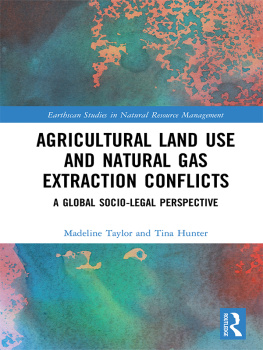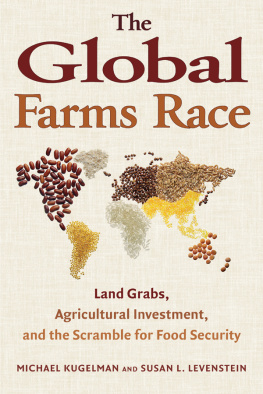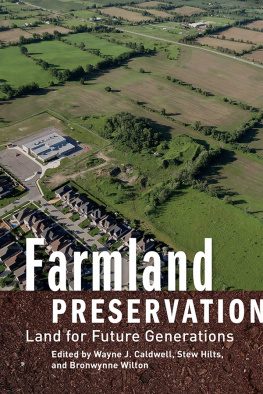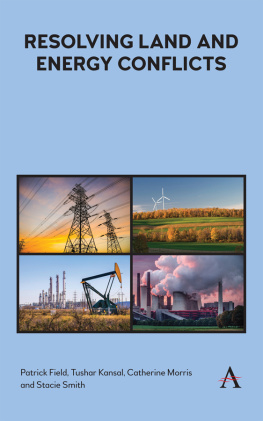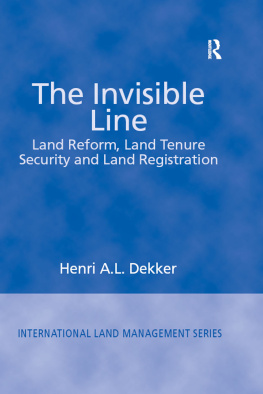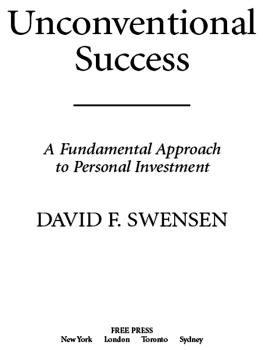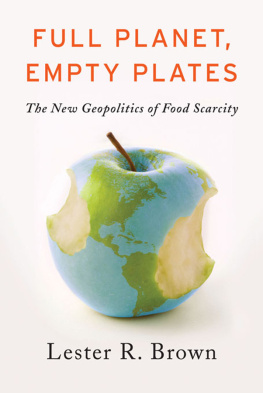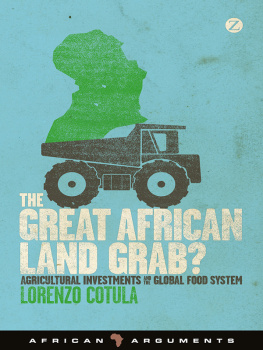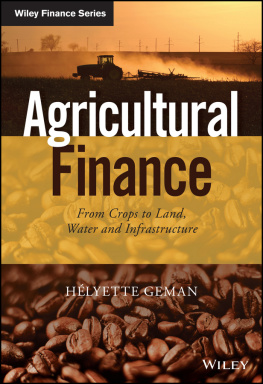This book presents an excellent account of the socio-regulatory environment in seven shale gas holding countries, highlighting the intractable tension between securing energy supply and a sustainable habitat. More importantly even, Madeline Taylor and Tina Hunter have written an absolutely timely book on a crucial aspect of the unconventional gas conundrum: how agricultural landowners can be empowered vis--vis the gas industry, and how the regulatory governance makes a difference. This book will be an invaluable resource for both scholars and practitioners alike.
Andreas Goldthau, Royal Holloway University of London, UK
Agricultural Land Use and Natural Gas Extraction Conflicts
Onshore unconventional gas operations, in most jurisdictions, operate on the legal principle that all activities during exploration and extraction are temporary in nature. The concept that the onshore unconventional gas industry has a temporary effect on the land on which it operates creates a regulatory paradox. On one hand, unconventional gas activities create energy security, national wealth and a bourgeoning export industry. On the other, agricultural land and agriculturalists may be significantly disadvantaged by unconventional gas activities potentially producing permanent damage to non-renewable fertile soils and spoiling the underground water tables. Thus, threatening future food security and food sovereignty.
This book explores the socio-regulatory dimensions of coexistence between agricultural and onshore unconventional gas land uses in the jurisdictions with the highest concentration of proven unconventional gas reserves Australia, Canada, the USA, the UK, France, Poland and China. In exploring the differing regulatory standpoints of unconventional gas land uses on productive farming land in the chosen jurisdictions, this book provides an original three-part categorisation of regulatory approaches addressing the coexistence of agricultural land and unconventional gas namely: adaptive management, precautionary and, finally, statism. It offers a timely and topical approach to socio-legal natural resource governance theory based on the participation, transparency and empowerment for agricultural landholders, examining how differing frameworks such as the collective bargaining framework can create equitable and sustainable contractual arrangements with unconventional gas companies.
Madeline Taylor is currently an Academic Fellow at The University of Sydney Law School, Australia.
Tina Hunter is the Director of the Aberdeen University Centre for Energy Law (AUCEL), UK, and the Professor in Petroleum Law at the University of Aberdeen.
Earthscan Studies in Natural Resource Management
Global Resource Scarcity
Catalyst for Conflict or Cooperation?
Edited by Marcelle C. Dawson, Christopher Rosin and Nav Wald
Socio-Ecological Resilience to Climate Change in a Fragile Ecosystem
The Case of the Lake Chilwa Basin, Malawi
Edited by Sosten Chiotha, Tembo Chanyenga, Joseph Nagoli, Patrick Likongwe and Daniel Jamu
Southern African Landscapes and Environmental Change
Edited by Peter Holmes and John Boardman
Large Carnivore Conservation and Management
Human Dimensions
Edited by Tasos Hovardas
Forest Management Auditing
Certification of Forest Products and Services
Edited by Lucio Brotto and Davide Pettenella
Agricultural Land Use and Natural Gas Extraction Conflicts
A Global Socio-Legal Perspective
Madeline Taylor and Tina Hunter
Community Based Natural Resource Management
From Economic Principles to Practical Governance
Brian Child
For more information on books in the Earthscan Studies in Natural Resource Management series, please visit the series page on the Routledge website:http://www.routledge.com/books/series/ECNRM/
First published 2019
by Routledge
2 Park Square, Milton Park, Abingdon, Oxon OX14 4RN
and by Routledge
52 Vanderbilt Avenue, New York, NY 10017
Routledge is an imprint of the Taylor & Francis Group, an informa business
2019 Madeline Taylor and Tina Hunter
The right of Madeline Taylor and Tina Hunter to be identified as authors of this work has been asserted by them in accordance with sections 77 and 78 of the Copyright, Designs and Patents Act 1988.
All rights reserved. No part of this book may be reprinted or reproduced or utilised in any form or by any electronic, mechanical, or other means, now known or hereafter invented, including photocopying and recording, or in any information storage or retrieval system, without permission in writing from the publishers.
Trademark notice: Product or corporate names may be trademarks or registered trademarks, and are used only for identification and explanation without intent to infringe.
British Library Cataloguing-in-Publication Data
A catalogue record for this book is available from the British Library
Library of Congress Cataloging-in-Publication Data
Names: Taylor, Madeline, author. | Hunter, Tina, author.
Title: Agricultural land use and natural gas extraction conflicts : a global socio-legal perspective / Madeline Taylor and Tina Hunter.
Description: New York : Routledge, 2018. | Series: Earthscan studies in natural resource management | Includes bibliographical references and index.
Identifiers: LCCN 2018031149 (print) | LCCN 2018033662 (ebook) | ISBN 9780203702178 (eBook) | ISBN 9781138572232 (hardback) | ISBN 9780203702178 (ebk)
Subjects: LCSH: Land use. | Natural gas.
Classification: LCC HD111 (ebook) | LCC HD111 .T39 2018 (print) | DDC 333.76dc23
LC record available at https://lccn.loc.gov/2018031149
ISBN: 978-1-138-57223-2 (hbk)
ISBN: 978-0-203-70217-8 (ebk)
Figures
Table
The extent to which the development of shale gas (and shale oil) over the past decade has changed the global energy game is difficult to overstate. It has already had significant implications for geopolitics as well as for energy markets, and experts are not necessarily in agreement regarding the impact it will have in the coming decades, except that it will not be negligible. Macro-level considerations of energy security, climate change and the like can, however, mask the fact that the micro-level reality of the individual drill pad is not infrequently a story of contestation, if not indeed conflict, as the imperatives of the unconventional hydrocarbon industry come into contact with those of agriculture. Whether it is a matter of competition for water resources, fears of contamination of aquifers or the general disruption of the countryside, the arrival of shale operations in long-established rural settings raises the issue of potentially conflicting normative orders. The precise manner in which those conflicts are resolved says much about a jurisdictions view of macro-level considerations as well as having implications for higher-level potential conflicts, for example, between food security and energy security. The extent to which any jurisdiction is successful in achieving a balance in the context of this multi-level and dynamic problematic is a matter of considerable interest not only to immediate stakeholders, but also to policymakers, legislators, regulators and interested parties in other countries also. This timely book offers the first comprehensive review of these issues in a number of key nations and will no doubt find a ready readership among the many who must grapple with these challenges in the years ahead.

